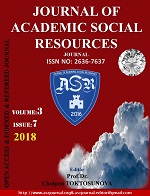Author :
Abstract
Мақалада түркі тектес халықтардағы отбасылық құндылыктар, бала өсіру ғұрпы, ұл-кыз тәрбиесіне қатысты түркі халықтарындағы ойлар сараланады. Түркі дүниесінің басын біріктіретін құндылықтардың бірі – ортақ түркілік тәрбие екендігі белгілі. Демек, түркі халықтарының саяси, мәдени, әлеуметтік өміріндегі түркілік тәрбиенің алатын орнын айқындаудың қазіргі түркілік ықпалдасуда маңызы зор. Сондықтан түркі халықтарының тәрбиелік жүйесінің өзіндік ерекшелігін көрсету, ортақ әдеби мұралардағы ой-пайымдарды саралау, түркі тектес қалықтардың дербес әдебиетіндегі ортақ арналарды табу, ұқсастықтары мен айырымдарын қарастырудың маңызы үлкен. Түркі халықтарына ортақ жәдігерлерден басталатын тәлім-тәрбиелік ой-пікірлер ғасырдан-ғасырға, ұрпақтан ұрпаққа жалғасып келеді. Түркілік тәлім-тәрбиелік мәдениеттің түп-төркіні сонау Орхон-Енисейден басталатын көне түркі ескерткіштерінен, тарихи жазба мұралар мен көшпенді ата-бабамыздың көшелі өмір салтынан бастау алады. Осындай асыл қазынаның бірі «Құтты білік» жәдігері. «Құтты білікте» адам баласының басындағы ақыл – сезімнен ажалға дейінгі жақсылы-жаманды жай-жапсары сан қатпарлы қалтарыстары өлең өрнегіне түскен. Солардың бір парасы қазақ халқының ауыз әдебиеті мен жазба әдебиетінде қалыптасты. Түркі халықтарының озық ой-пікірлерін шоғарланған даналық мектебінің заңды жалғасын Абай тағылымынан көруге болады. Абайдың тәлімдік ойлары сан салалы. Соның бір арнасы отбасылық құндылықтарға арналады. Өз бауырына, одан артылса ағайынына қамқорлық жасап жүрген ата-анасының іс-әрекеті балаға өнеге болмай тұрмайды. Бауырына, ағайынына, еліне, жеріне деген сүйіспеншілік пен Отаншылдықтың бастауы бала бойындағы альтруизм. Абай тілінде айтқанда –жылы жүрек пен рахымшылдық.
«Ақылдың мінез сауыты», – деп айтқандай баланың мінез-құлқының іргетасы да ата-ана тәрбиесімен қаланады. «Болар елдің баласына» лайықты іс – талаптылық, татулық, жақсы қылық, сұхбаттастық, жолдастық, сырға беріктік және өнер дей отырып, осы қасиеттерге күншілдік, көрсеқызарлық, жеңсікқойлық, пайдакүнемдік, ұсақтық, пысықсымақтық сияқты іс-әрекеттерді қарсы қоя сипаттайды.
Татулық, адалдық жігіттер арасында қаншалықты бағалы болса, жұбайлар (жар) арасында да, кейіндеп ерлі-зайыптылардың өзге құрбы-құрдаспен қарым-ақатынасына да маңызды фактор екендігін көрсетеді. Түптеп келгенде, ақын ойының өзегінде, «пайда ойламай, ар ойлайтын» салауатты қоғам құндылығы жатыр. Өлең ақынның «Көкірегінде қаяу жоқ, қиянат жоқ, Қажымас, қайта айнымас қайран татуды!» көксеген мақсатынан туындағанын аңғаруға болады.
«Тектінің ұрпағы, көргендінің баласы бол» дегенді ту етіп ұстанған түркі жұртының ұрпақ тәрбиесіне қатты көңіл бөлгендігі мақалада келтірілген мысалдар арқылы дәйектеледі.
Keywords
Abstract
The article analyzes the thoughts of Turkic peoples related to the family values of the Turkic peoples, the way of raising children, the education of the son and the girl. One of the values that unites the Turkic world is common Turkic education. Therefore, the role of Turkic education in the political, cultural and social life of the Turkic peoples is crucial in modern Turkish integration. Therefore, it is important to show the originality of the educational system of the Turkic peoples, to differentiate thoughts on the common literary heritage, to find common channels in the personal literature of Turkic peoples, to look at similarities and differences. The teaching-learning ideas starting with the common items of Turkic peoples are continuing from generation to generation. The origins of the Turkic teaching culture originate from the ancient Turkic monuments starting from the Orkhon-Yenisei, from the historical record and from the nomadic lifestyle of our nomadic ancestors. One of such noble treasures is the "Kutty bilik" legacy. In "Kutty bilik" the good from the head of the human being to the grave is a good example of a good thing. One of them was formed in the oral literature and written literature of the Kazakh people. The legitimate continuity of the intellectual wisdom of the peoples of Turkic peoples can be found in Abai's essay. Abai's educational ideas are numerous. One of them is dedicated to family values. The behavior of the parent who cares for his own clansman, who cares for his brother, is inappropriate for the child. Love for a relative, a brother, a country, a land, and altruism within the childhood of patriotism. Speaking in Abay - warm heart and mercy.
As the behavior of the "mind of the mind", the foundation of the child's behavior is also raised by parenting. Describing actions such as dignity, peace, goodwill, dialogue, friendship, secrecy, and art, "the child of a country of the future" describes the opposite of such attitudes as dishonesty, cynicism, delicacy, charisma, laxity, harshness.
The value of peace and loyalty is an important factor in the relationship between the fellows and between the couple and the spouse. Ultimately, the value of a healthy society lies at the core of the poet's thought, "thinking not for profit". It is possible to notice that the poet's poem is caused by the desire of the poet, "There is no shame in the chest, no restraint, no fuss! The Turkic people, who claim "to be a son of a noble, be good breeding" are attentive to the examples given in the article.





